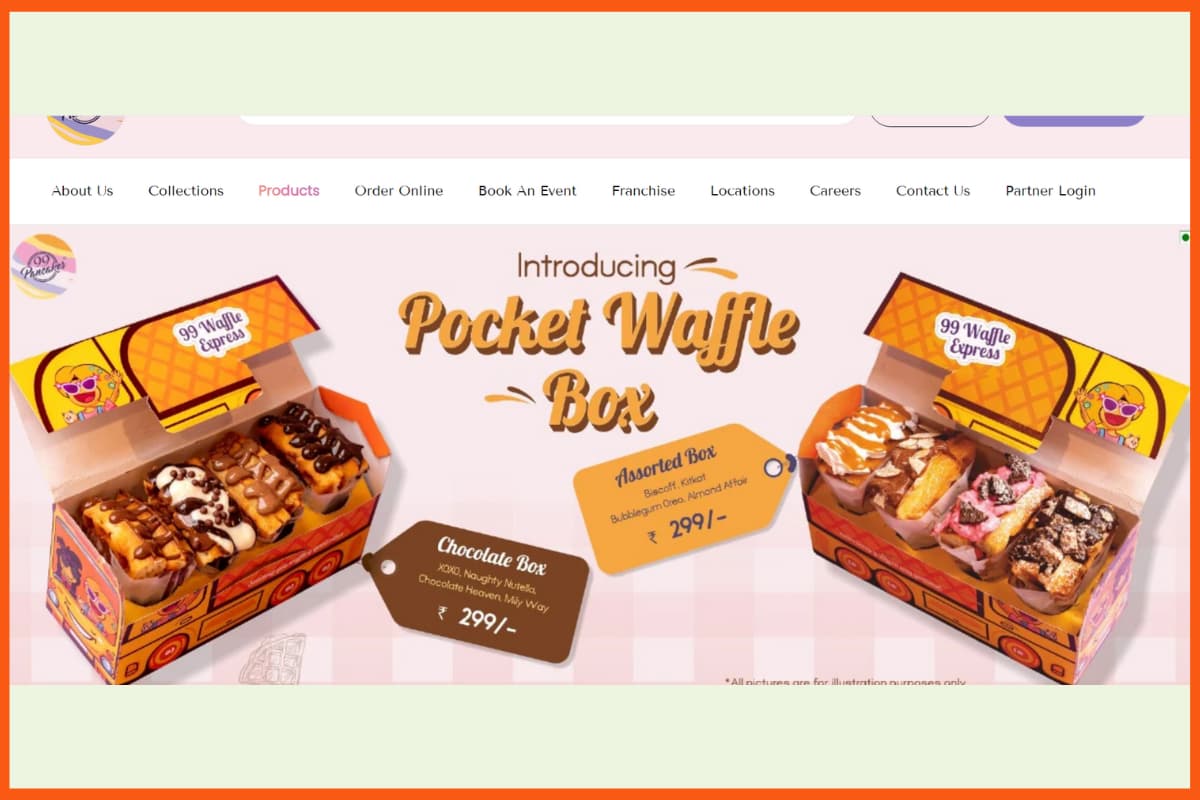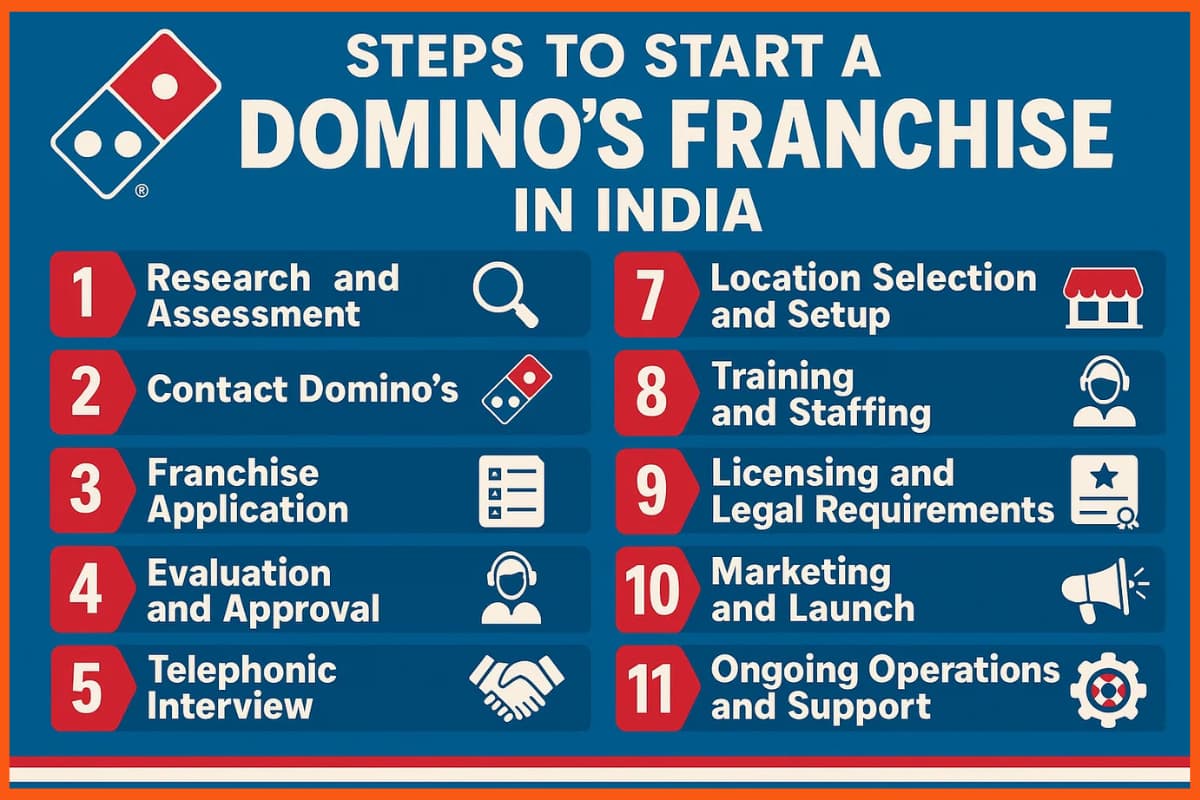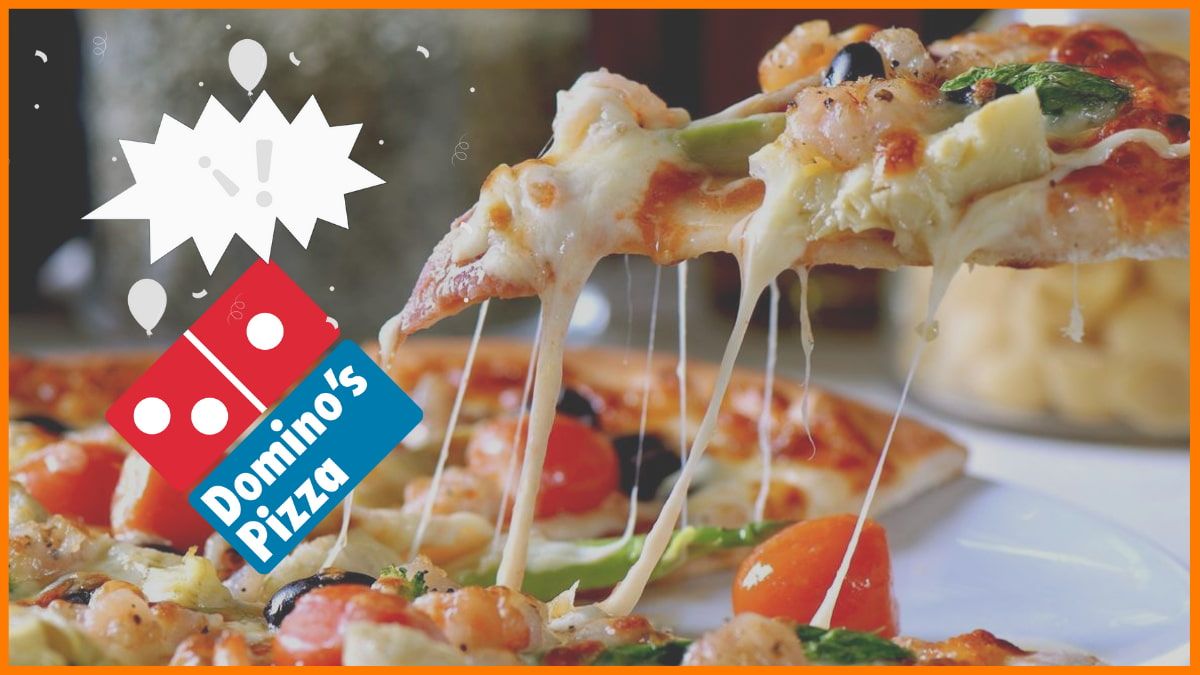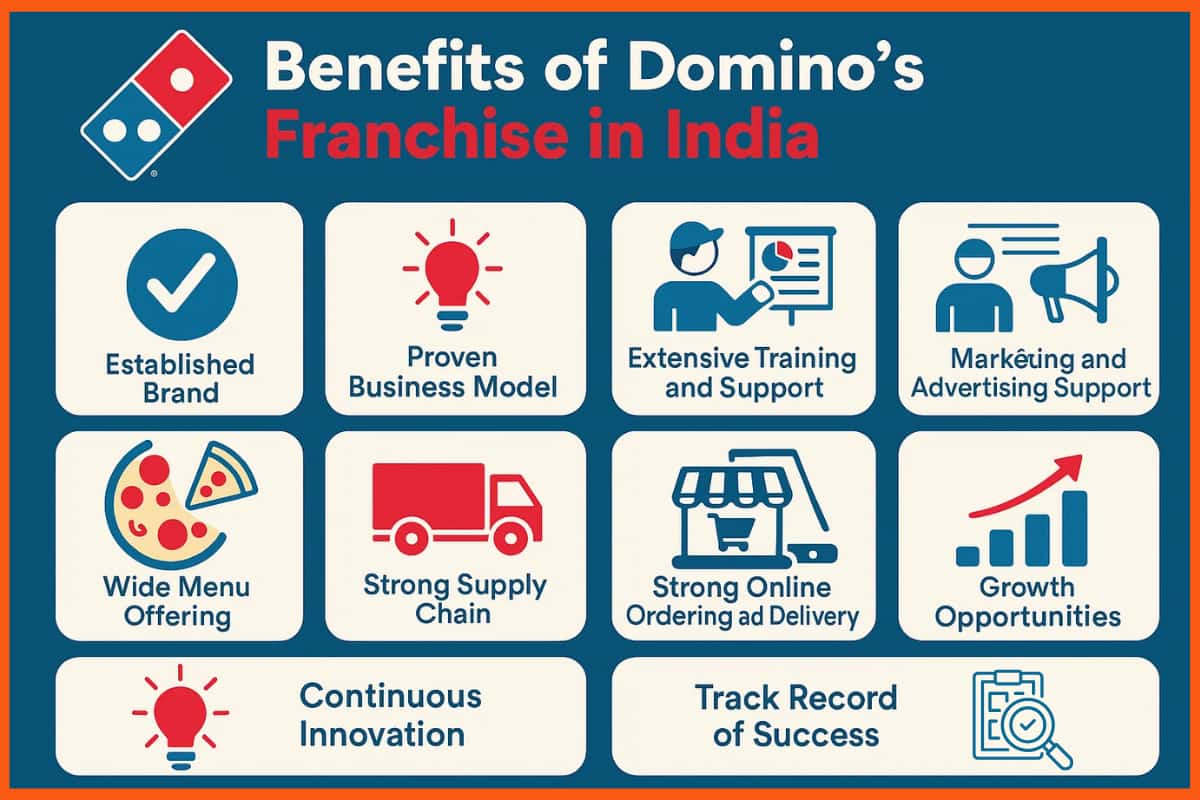Bakery businesses have been a staple in India for centuries. From traditional bakeries to modern cafes, the bakery industry has seen tremendous growth in the country over the last decade. With the rise of the middle class and changing consumer preferences, there is a significant demand for high-quality bakery products in India. For entrepreneurs looking to invest in this lucrative market, franchising offers a compelling opportunity. Starting a bakery business in India requires minimum capital investment, but the actual investment may vary depending on factors such as the brand value, scale of operation, skills, and location of the store. As a result, the bakery industry offers a great opportunity for entrepreneurs looking to invest in the food industry.
The bakery business is vast, encompassing a wide range of products, such as biscuits, cookies, chocolates, muffins, pastries, cakes, doughnuts, bread, dessert items, pizza, bars, and more. It is considered a safe and profitable business venture with the potential to succeed in any decent area. Investing in a bakery franchise business of an established brand provides several advantages for new entrepreneurs, even if they lack experience in the industry. Most successful brands offer training and standard operating procedures (SOP) to new franchisees before granting them the franchise. Bakery chains in India have gained popularity for their wide range of cakes, pastries, and snacks, with many expanding through franchise models.
In this blog post, we’ll dive into some of the top bakery and cake franchises in India that offer aspiring business owners a chance to tap into this lucrative industry. We’ll provide details on their investment requirements, training, and support, giving you an expert guide to help you make an informed decision on your bakery business journey. Whether you’re a seasoned entrepreneur or a first-time business owner, keep reading to discover the best bakery franchises in India.
The bread and bakery products market has grown well in recent years. It is expected to grow from $234.95 billion in 2024 to $249.69 billion in 2025, with a 6.3% yearly growth rate. In the past, this growth happened because of things like local food habits, strong marketing, global food trends, changes in retail shopping, and the affordable prices of bakery items.

Profitable Franchise To Apply For:
| Franchise | Application | Category |
|---|---|---|
| 7th Heaven | Apply Here | Bakery & Cafe |
| Biggies Burger | Apply Here | Burger Chain |
| Chicago Pizza | Apply Here | Pizza Chain |
| Let’s Transform Salon | Apply Here | Beauty & Wellness |
| Meatwale | Apply Here | Food & Services |
| Frozen Bottle | Apply Here | Beverages & Cafe |
| Moti Mahal | Apply Here | Restaurant |
| Pepperfry | Apply Here | Furniture |
List of Top Bakery/Cake Franchises in India
| S.No | Bakery Franchise | Origin | Specialties | Ideal For |
|---|---|---|---|---|
| 1 | 7th Heaven | India | Cakes, pastries, chocolates, desserts | Quick-service dessert lovers |
| 2 | Sugarr & Spice | India | Cakes, cookies, snacks | Small business entrepreneurs |
| 3 | Mio Amore | India | Cakes, savory snacks, pastries | Affordable bakery venture |
| 4 | Monginis | India | Cakes, cupcakes, chocolates | High-footfall retail areas |
| 5 | Mr. Brown Bakery | India | Cakes, breads, fast food | Premium neighborhood bakeries |
| 6 | WS Bakers | India | Cakes, donuts, ice cream | Quick-service model |
| 7 | German Bakery | India | Organic breads, European bakery items | Health-focused & niche audience |
| 8 | Karachi Bakery | India | Biscuits, cookies, dry cakes | High-volume packaged goods model |
| 9 | Cookie Man Cookies | Australia/India | Gourmet cookies, brownies | Malls, airports, high-end spaces |
| 10 | Just Bake | India | Designer cakes, pastries, snacks | Events and party-driven markets |
| 11 | Sweet Chariot | India | Cakes, continental food, coffee | Café-bakery hybrid model |
| 12 | Uncle Peter’s Pancakes | India | Pancakes, waffles, coffee | Youth-oriented urban cafes |
| 13 | 99 Pancakes | India | Pancakes, waffles, beverages | High footfall, trendy locations |
| 14 | CK’s Bakery | India | Sandwiches, pastries, drinks | Budget-friendly, compact spaces |
| 15 | Millie’s Cookies | UK | Cookies, muffins, milkshakes, coffee | Premium cookie cafés |
7th Heaven
| Name | 7th Heaven |
|---|---|
| Founded | 2014 |
| Franchise Units | 200+ |
| Investment | INR 14-30 Lakhs |
| Apply to 7th Heaven’s Franchise | Click Here |

7th Heaven, founded in 2014, is a low-cost bakery franchise with a live kitchen concept. This brand specifically offers cakes, 3D cakes, cupcakes, French macarons, doughnuts, and much more. The 7th Heaven already has 200+ outlets in the 75+ cities throughout the country. It is the fastest-growing bakery chain in India. They are known for their reasonable prices, same-day delivery of customized cakes, and yummy desserts. Their cafes also have a variety of unique beverages up for grabs.
7th Heaven Bakery provides extensive training to its franchisees, covering areas such as store operations, product knowledge, customer service, marketing, and more. The brand also assists franchisees in store design, equipment purchase, and setting up the store. It is in the list of top 10 bakery franchise in India.
Sugarr & Spice
| Name | Sugarr & Spice |
|---|---|
| Founded | 1990 |
| Franchise Units | 90 |
| Investment | INR 10 Lakhs (approximately) |
| Apply to Sugarr & Spice’s Franchise | Click Here |

Sugarr & Spice is a Kolkata-based bakery company founded in 1990 is a cake shop franchise that specializes in customized cakes, pastries, and desserts. The founder of Sugarr and Spice is Supriya Roy. The company is currently offering as many as 51 products, including cakes, pastries, bread, sandwiches, burgers, pizzas, hot dogs, croissants, patties, rolls, kebabs, and tandoori items, as well as packaged items such as chocolates, cookies, etc. They have over 90 franchises in West Bengal and a few out of the state. It is the fastest-growing bakery chain in India.
Overall, investing in a Sugarr & Spice bakery franchise can be an excellent opportunity for entrepreneurs looking to start a bakery business in India. With its strong brand value, unique product offerings, and exceptional support, the franchise offers significant potential for success in the bakery industry.

Mio Amore
| Name | Mio Amore |
|---|---|
| Founded | 2015 |
| Franchise Units | 300+ |
| Investment | INR 12 Lakhs |
| Apply to Mio Amore’s Franchise | Click Here |

Mio Amore is a well-known cake shop franchise in India that offers a wide range of products, including cakes, pastries, cookies, bread, and more. It was founded in 2015 by Arnab Basu after a split with Monginis. It tops the cake franchise list in India, which you should consider investing in. The Mio Amore franchise profit margin offered is 20% on the MRP of the product, which is considerably low, but owing to the turnover, you can expect a quick return on investment. The Mio Amore franchise in West Bengal and Odisha count to 300.
Mio Amore is known for its quality products, affordable pricing, and excellent customer service. Investing in a Mio Amore bakery/cake franchise can be a lucrative opportunity for entrepreneurs looking to start a bakery business in Eastern India. It is on the list of the top 10 bakery franchise in India.

Monginis
| Name | Monginis |
|---|---|
| Founded | 1956 |
| Franchise Units | 750+ |
| Investment | INR 10-20 Lakhs |
| Apply to Monginis’ Franchise | Click Here |

Monginis is an Indian multinational pastry and bakery chain based in Mumbai. It was renamed Mio Amore before the company split. It is considered to be the best bakery franchise in India. It was started in the year 1956 in the city of Mumbai. Today, the company has more than 900 outlets in India and Egypt.
The Monginis franchise cost is around INR 10-20 lakhs. A royalty fee of INR 6-8 lakhs also has to be paid by the franchisee to the company. The profit margin for the Monginis franchise stands around 20%. If you are considering investing in a cake franchise in India, this is one to think about. With its established brand value, quality products, and excellent support, the franchise offers significant potential for success in the bakery industry. It falls in the top category of the cake franchise list.
Mr. Brown Bakery
| Name | Mr. Brown Bakery |
|---|---|
| Founded | 2008 |
| Franchise Units | 10-20 |
| Investment | INR 20-30 Lakhs |
| Apply to Mr. Brown Bakery’s Franchise | Click Here |

Mr. Brown Bakery is a gourmet family-owned pastry store founded in the heart of Lucknow. It now has a huge presence in major cities in India like Delhi, Lucknow, and Kanpur. The company was started in 2008, and the franchising option was adopted in 2012. Mr. Brown is known for its quality products, innovative designs, and affordable pricing.
To invest in a Mr. Brown Bakery franchise, an initial investment of around Rs. 20 lakhs to Rs. 30 lakhs is required, depending on the location and size of the store. The franchise agreement is valid for three years and can be renewed afterward. The franchisee is expected to pay a royalty fee of 5% of the monthly net sales to the franchisor. Along with comprehensive training, the brand also assists franchisees in store design, equipment purchase, and setting up the store. This opportunity positions investors alongside famous cake brands, offering a chance to be a part of a globally recognized name in the confectionery industry.

WS Bakers
| Name | WS Bakers |
|---|---|
| Founded | 2014 |
| Franchise Units | 50-100 |
| Investment | INR 50 Lakh – 2 Crore |
| Apply to WS Bakers’ Franchise | Click Here |

WS Bakers is a popular bakery franchise in India that offers a wide range of products, including cakes, pastries, bread, biscuits, chocolates, and more. And the best part? It’s a 100% vegetarian bakery, the best cake franchise in India ensuring everyone can enjoy their yumminess. So the next time you crave an eggless cake, give them a visit. It is in the list of top 10 cake franchise in India.
The brand is significant in Western India, with over 50 franchise outlets in different cities. An investment of Rs. 50 lakh – 2 crores is required to set up one of these bakeries. The franchise agreement is valid for five years and can be renewed afterward. The franchisee is expected to pay a royalty fee of 6% of the monthly net sales to the franchisor.
German Bakery
| Name | German Bakery |
|---|---|
| Founded | 1988 |
| Franchise Units | 20+ |
| Investment | INR 5-10 Lakhs |
| Apply to German Bakery’s Franchise | Click Here |

The German Bakery franchise started in 1988. The German bakery is one of the oldest bakeries in town and a must-visit on everyone’s list. Currently, it doesn’t have many outlets, but it is the perfect bakery to have your franchise’s sights on. It is on the list of top 10 bakery brands in India.
Overall, investing in a German Bakery franchise can be an excellent opportunity for entrepreneurs looking to start a bakery business with a unique and established brand in India. With its quality products, distinctive flavors, and excellent support, the franchise offers significant potential for success in the bakery industry.

Karachi Bakery
| Name | Karachi Bakery |
|---|---|
| Founded | 1953 |
| Franchise Units | 150+ |
| Investment | INR 10-20 Lakhs |

Renowned globally for its delectable array of baked goods and sweets, the brand has seamlessly blended time-honored traditions with innovative concepts and captivating palates across all continents. With an extensive selection catering to diverse tastes and preferences, it has become a household name cherished by individuals of all ages and backgrounds. Karachi bakery franchise is a profitable bakery franchise in India.
Each confectionery masterpiece is meticulously crafted with unparalleled care and precision, ensuring an unrivaled taste experience that has garnered widespread acclaim. From the bustling streets of Mumbai to the serene landscapes of Kerala, the brand has etched its mark on the Indian culinary scene through unwavering dedication to excellence. Karachi Bakery franchise cost is INR 10 lakhs – INR 20 lakhs.
At the heart of its success lies a commitment to delivering nothing short of perfection. Bolstered by a world-class production infrastructure and a robust delivery network, it ensures that every treat reaches its destination in pristine condition, ready to delight discerning customers. Coupled with its unwavering focus on customer satisfaction, the brand has emerged as a beacon of quality and reliability, setting itself apart in a crowded market landscape. With a legacy built on passion, craftsmanship, and an unwavering commitment to excellence, the brand continues to captivate taste buds and hearts alike, solidifying its status as a beloved icon in the realm of baked goods and sweets worldwide.
Cookie Man Cookies
| Name | Cookie Man Cookies |
|---|---|
| Founded | 1958 |
| Franchise Units | 60+ |
| Investment | INR 12.5-15.5 Lakhs |

In January 2000, Australian Foods (I) Pvt. Ltd. introduced Cookie Man to the Indian market, offering an elite range of cookies that are made from recipes honed over 50 years at an exclusive R&D center in Australia. The Cookie Man product line is a unique collection of high-quality cookies that offer great value for money.
The roots of Cookie Man’s cookies, one of the top bakery brands in India, lie in Australian culture, and they have been designed to reflect the tastes of young people from different parts of the world. Cookie Man’s cookies are renowned for being the best in the world, and this is due to their special oven technology, which bakes them to perfection. The company uses only the best ingredients to make its cookies, which meet strict global standards for quality and consistency.
Today, after more than two decades of operations in India, Cookie Man, considered as the best cake franchise in India, has become the most popular brand of freshly baked cookies in the country. The range of delicious cookies comes in a wide variety of international flavors, and they are carefully packaged in ways that blend style and function. The company’s mouth-watering, fresh-baked cookies make for the perfect snack, gift, or treat. So, if you are looking for a delightful and satisfying snack, look no further than Cookie Man. Their cookies are sure to leave you wanting more! It is a profitable cake shop franchise.

Just Bake
| Name | Just Bake |
|---|---|
| Founded | 2005 |
| Franchise Units | 250+ |
| Investment | – |

Just Bake is one of the best cake brands in India. It is a highly renowned and rapidly expanding cake shop chain that originated in India in 2005. With a presence in over 18 cities, it has established itself as a leader in the realm of cakes. The brand’s contribution to various celebrations is unparalleled, as no festivity is considered complete without a Just Bake cake.
Just Bake’s diverse offerings encompass an array of delectable treats, including specialty cakes, and shaped cakes, as well as an assortment of savory items, snacks, and irresistible pastries. Its products have played a pivotal role in enabling countless customers to commemorate their special moments in a manner that is truly unforgettable. In South India, “Just Bake” has become synonymous with “celebration” itself. Furthermore, Just Bake excels in crafting custom designer cakes, wedding cakes, photo cakes, and a wide variety of birthday cakes, catering to every conceivable preference and theme.
Sweet Chariot
| Name | Sweet Chariot |
|---|---|
| Founded | 1981 |
| Franchise Units | 30+ |
| Investment | INR 15-20 Lakhs |

Sweet Chariot is a renowned company headquartered in Bangalore, specializing in the production and sale of a wide range of bakery and confectionery products. The company’s journey began in 1981 with the establishment of its first cake shop on Brigade Road, a location that has since become iconic and synonymous with the brand. Over 35 years, Sweet Chariot, a low cost bakery franchise, has evolved into a global leader in the baking and confectionery industry.
Since its inception, the company has experienced significant growth, particularly in the realms of bread, chocolate, cookies, pastries, and savory items. Today, Sweet Chariot has established itself as a prestigious brand, catering to a diverse clientele that includes top-tier companies. The company is renowned for its delectable cakes, with a special emphasis on its fresh cream cakes and intricately designed confections, all offered at fair and competitive prices.

Uncle Peter’s Pancakes
| Name | Uncle Peter’s Pancakes |
|---|---|
| Founded | 2019 |
| Franchise Units | 35+ |
| Investment | INR 10-15 Lakhs |

If you’re a pancake lover in India, you may have heard of Uncle Peter’s Pancakes – one of the most renowned bakery brands in India and the one and only real pancake brand in the country. This brand is known for serving pancakes in the most authentic way possible, with a menu that offers a unique culinary experience that can’t be found anywhere else in India. With 35 outlets already spread across 9 locations, Uncle Peter’s Pancakes has become a popular destination for foodies and pancake enthusiasts alike. However, the brand’s ambition doesn’t stop there – it aims to expand its presence all over India and establish itself as a household name. It is a low cost bakery franchise.
If you’re interested in being a part of this exciting venture, Uncle Peter’s Pancakes offers franchise opportunities in three different models: Quick Service Restaurant (QSR), cafe, and cloud cooking. The brand is run and backed by a team of experienced engineers who have worked in the food and drink industry for many years, ensuring that the quality of the pancakes and the customer experience are always top-notch.
99 Pancakes
| Name | 99 Pancakes |
|---|---|
| Founded | 2017 |
| Franchise Units | 10-20 |
| Investment | INR 15 lakhs-INR 25 lakhs |

99 Pancakes is India’s first and fastest-growing pancake brand, known for its mouth-watering thick shakes, pancakes, and desserts. With a strong customer base and a commitment to quality, it has quickly gained popularity across the country. Now, the brand is gearing up for nationwide expansion through its franchise model, bringing its delicious offerings to even more cities in India.

CK’s Bakery
| Name | CK’s Bakery |
|---|---|
| Founded | 2011 |
| Franchise Units | 100-200 |
| Investment | INR 10 lakhs-INR 30 lakhs |

Founded in 2015 by Mr. Manu Ranganathan, CK’s Bakery was built on the vision of offering fresh, high-quality, and delicious bakery products at affordable prices in a hygienic environment. The brand quickly gained popularity in Chennai, leading to the opening of 60+ outlets. Known for its wide range of cakes, sandwiches, and paninis, CK’s Bakery is now expanding across India through its franchise model, bringing its signature taste and quality to more customers nationwide.
Millie’s Cookies
| Name | Millie’s Cookies |
|---|---|
| Founded | 1985 |
| Franchise Units | 50-100 |
| Investment | INR 30 Lakhs – INR 50 Lakhs |

Millie’s Cookies, one of the top bakery brands in India is a popular bakery chain from the UK that has shops in different countries. It is known for its tasty cookies, muffins, milkshakes, and hot drinks. Many people love the brand — especially cookie lovers, fun-loving teens, and adults. Now, Millie’s Cookies wants to grow bigger and is offering a franchise model. They are looking for people who want to partner with them and open new Millie’s Cookies stores.
Conclusion
The Bakery Business ranks third in the food sector in terms of generating high revenue. The market value of the bakery industry is expected to grow, which shows that it is thriving and it is a great opportunity to invest in. The top bakery franchises in India, including 7th Heaven, Sugarr & Spice, Mio Amore, Monginis, Mr Brown Bakery, WS Bakers, and German Bakery, offer an established brand value, quality products, extensive training, and excellent support to their franchisees. Each franchise has its own unique offerings and advantages that cater to different regions and customer preferences in India. Investing in a bakery franchise can be a rewarding and profitable business opportunity for aspiring entrepreneurs with a passion for baking and a desire to start their own business.
It is essential to consider the bakery franchise cost carefully and the expected return on investment to ensure a profitable venture. By conducting thorough research and seeking professional advice, potential franchisees can make informed decisions and avoid incurring losses. Starting a bakery franchise can be an exciting and rewarding opportunity for entrepreneurs looking to enter the food industry. We wish you all the best in your endeavors!
FAQs
What is a bakery/cake franchise?
A bakery/cake franchise is a business model in which an entrepreneur invests in an established bakery brand’s license to operate a new outlet under the same brand name and product offerings. The franchisee receives training, support, and marketing assistance from the franchisor in exchange for a franchise fee and a percentage of sales.
How to start a bakery franchise business in India?
To start a bakery franchise business in India, research and select a brand, submit an application to the franchisor, attend training and orientation, secure a location, and launch the store with the support and guidance of the franchisor.
What licenses are needed to open a bakery business?
To open a bakery business in India, you need licenses such as FSSAI, trade license, health trade license, GST registration, fire safety certificate, and pollution control certificate.
What are the advantages of investing in a cake franchise?
Investing in a cake franchise has several advantages, including established brand recognition, access to proven business models, marketing and promotional support, standardized operations, and training.
How much does it cost to invest in a bakery franchise in India?
The cost of investing in a bakery franchise in India varies depending on the brand, location, and size of the store. Typically, the investment ranges from a few lakhs to several crores of rupees, with ongoing royalty fees and marketing fees paid to the franchisor.
Which are the top cake brands in India?
Some of the top cake brands in India include Monginis and Mio Amore, renowned for their quality, variety, and widespread presence in the country’s bakery industry.
Why should I invest in a cake franchise business in India?
Investing in a cake franchise in India provides entrepreneurs with a proven business model, established brand recognition, access to extensive training and support, and a growing market with high demand for bakery products.
What is the average bakery franchise cost in India?
The average bakery franchise cost in India ranges from ₹5 lakh to ₹50 lakh, depending on the brand, location, and setup size.
Is there any Mio Amore franchise Kolkata?
Yes, Mio Amore has a strong presence in Kolkata, running a vast network of franchise-owned and operated bakery outlets, with several hundred locations across the region.




















